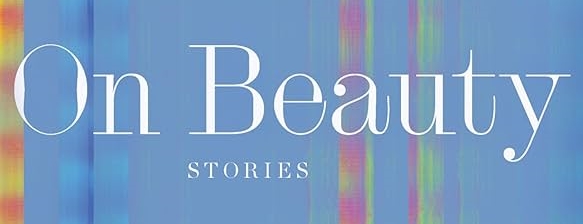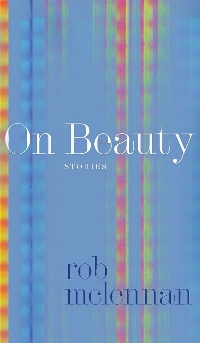Review: On Beauty: stories by rob mclennan

I received a free copy of this book from the publisher in return for an honest review.
‘On Beauty is a provocative collection of moments, confessions, overheard conversations, and memories, both fleeting and crystalised, revolving around the small chasms and large craters of everyday life. Situated at the crossroads of prose and poetry, these 33 vignettes explore the rhythm, textures, and micro-moments of lives in motion.
‘Composed with a poet’s eye for detail and ear for rhythm, rob mclennan’s brief stories play with form and language, capturing the act of record-keeping while in the process of living those records, creating a Polaroid-like effect. Throughout the collection, the worlds of literature and art infuse into intimate fragments of the everyday.
‘A welcome chronicle of human connection and belonging, On Beauty will leave readers grappling with questions of how stories are produced and passed through generations.’

As its blurb indicates, On Beauty, by rob mclennan, is a collection of 33 slices of life.
Consisting of the reflections of a multitude of characters, while there is a minimal through-line, there’s no over-arching plot – meaning this book won’t be for everyone – but as you pass through the scenes, thought-provoking observations pique your interest and you start to notice connections and shared themes with, and echoes from, previous stories.
Not all of the characters are even given names – sometimes, the first-person “I” might or might not be (a fictionalised version of) the author himself – and only a small number of those named explicitly reappear in later stories. The individual pieces are interspersed with episodes of the title story, where an un-named first-person narrator reflects on his wife’s pregnancy and son’s early years.
There were times when I suspected a described secondary character may be one I met earlier. Even so, the absence of shared details between the two stories (and the Canadian setting!) rightly or wrongly put me in mind of a multiverse in the vein of Emily St. John Mandel’s oeuvre.
You can tell this book really made me think, and I haven’t even got onto the themes that particularly stood out to me yet! As if that isn’t a recommendation in itself (my blog’s strapline is ‘thoughtful book reviews’, after all), this book is lyrically and evocatively written. Every word is carefully chosen, and the author succeeds in painting compelling, distinctive characters in just a few, commonly discrete, numbered sections.
The theme that most stood out to me – ironically, considering the number of un-named characters – concerned naming. Various characters (often those who have, or are about to have children) consider questions such as: does being named after someone confer certain expectations? Does your name shape your character, or would you be who you are regardless? Does changing your name make you more fully who you are, or just bring your name into alignment with who you already are?
There are also discussions about the responsibility of naming a new person, how your name can betray your age (due to popular names and/or media around the time you were born), how songs and puns involving your name can make your life harder, the fact that people can have favourite names without necessarily wanting offspring to apply them to… the list goes on!
Another standout theme for me was that of inheritance, and the stories we associate with objects. Dying characters are preoccupied by questions of what they’re leaving to whom, and whether their possessions will retain the meanings they’ve ascribed to them after they’ve gone. Others find and accumulate things without necessarily knowing why. Videos and photos are only valuable to those personally connected with them, and defined by their distinctive qualities – Polaroid pictures and Super 8 films, for example.
Kind-of relatedly, one character particularly caught my attention by contemplating the idea that shared moments of the “breaking news” kind are only “shared” in a very basic sense, as we don’t all have the same immediate understanding or feel for what we just witnessed, whether in the flesh or via a screen. What’s more, our memories and the meanings we attach to them only become more disparate as time passes.
This was partly because it’s so interesting (and not unrelated to my PhD thesis), and partly because the character used the Challenger disaster as an example, which sent me down a bit of an internet rabbit hole reading about it (I wasn’t born in 1986 and this was the first time I’d seen the footage, so this was a shared moment I was very late to!).
One of many other images and concepts that pop up more than once concerns the idea – which I was already familiar with – that reading a book for the second (or third, or fourth…) time can be a completely different experience from the first, as you’ve changed in the interim, and notice things you’d originally missed.
I found it quite amusing that this book refers to this phenomenon because, sure enough, when re-skimming it for this review, I found myself noticing connections and taking down quotes I’d initially skated over. Though that does make me worry that I’m still missing things that would only become apparent in subsequent (and more focussed) re-readings!
On Beauty is lyrical, kaleidoscopic, and thought-provoking.